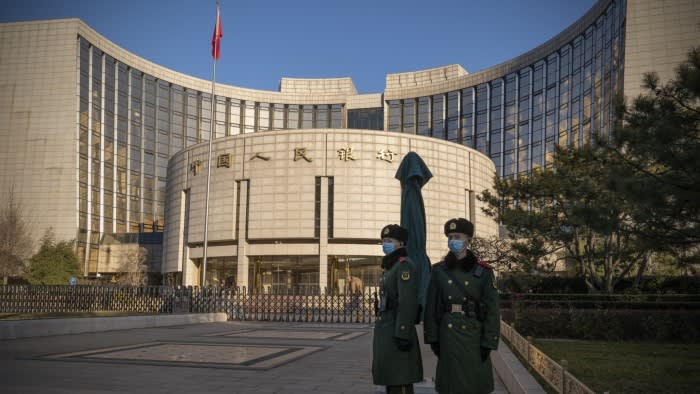Beijing’s Efforts to Manage Economic Narratives
As worries mount over Beijing’s ability to sustain the world’s second-largest economy, Chinese authorities are urging prominent local economists to avoid discussing negative trends such as deflation. Numerous analysts and researchers from top universities, state-run think tanks, and other state-affiliated institutions have reported being told by regulators, employers, and local media to steer clear of topics like capital flight and declining prices. Seven notable economists informed the Financial Times that their organizations had restricted them from publicly addressing certain economic issues, including the struggling property sector and low consumer demand.
Controlling Economic Perceptions
Two think-tank scholars and two brokerage economists, all of whom advise the government, revealed that there is a concerted effort to present economic news positively to bolster public confidence. An advisor to the central bank mentioned that regulators discourage public discussions of economic challenges. The aim is to interpret negative data in a more favorable light to maintain a positive economic outlook.
Impact of Information Control
Researchers noted that Beijing’s attempts to regulate economic discourse have led to increased self-censorship among financial analysts who rely on official data. Andrew Collier, managing director of Orient Capital Research in Hong Kong, commented on the situation, highlighting the challenge of maintaining transparency during an economic downturn in a country that prioritizes a positive image. This combination of factors results in a lack of clear and honest business reporting.
Economic Challenges and Government Response
The clampdown on negative financial commentary follows a series of disappointing economic indicators that have undermined investor confidence and Beijing’s post-Covid recovery efforts. China’s GDP grew by just 0.8% in the second quarter compared to the previous three months. Despite acknowledging economic challenges, the government continues to prohibit discussions on specific topics like deflation, even as China’s producer price index has been falling for eight consecutive months and consumer inflation hit a two-year low in June.
Censorship in Media and Academia
Senior officials, including those from the National Bureau of Statistics, have publicly denied the existence of deflation. However, financial experts report that state media now only permits positive economic commentary. One financial institution scholar in Shanghai noted that discussing financial risks openly was previously acceptable, but now such comments are censored even in pre-recorded interviews.
Efforts to Boost Confidence
Some analysts believe Beijing’s strategy to limit negative commentary is aimed at boosting confidence, which is crucial for economic recovery but currently lacking. Dan Wang, head of the Chinese economy, emphasized the importance of confidence in reviving the economy. Nonetheless, the pressure to avoid sensitive subjects has led economists to use euphemisms like “subdued prices” in their reports.
Private Dissent Among Economists
Despite public restrictions, some economists continue to privately express concerns. At a closed-door event, Fan Jianping, former chief economist of the State Information Center, warned that China is nearing a recession and questioned the reliability of official statistics. This sentiment, although shared quietly, reflects the underlying apprehensions among China’s economic experts.
Moving Forward
The ongoing efforts to control economic narratives in China highlight the tension between maintaining public confidence and acknowledging economic realities. As the country navigates these challenges, the perspectives of economists, whether publicly expressed or privately held, will play a crucial role in shaping China’s economic future.

